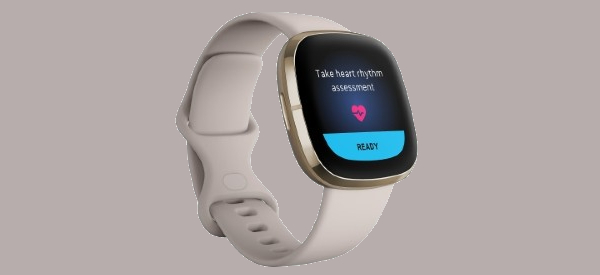
Fitbit recently announced that the Fitbit ECG App now has both FDA 510(k) clearance and CE marking to analyze user heart rhythm for atrial fibrillation (AFib). The new Fitbit Sense smartwatch — available now — is the first Fitbit wearable with the ECG App. According to the CDC data for 2018, 175,326 death certificates in the U.S. mentioned AFib and pointed to AFib as the primary cause of death in 25,845 of those deaths. AFib happens when the rhythm of one or both of the heart’s upper chambers are is irregular. AFib causes about one in seven strokes, the CDC reports, and AFib-related strokes also tend to be more severe than strokes associated with other causes.
The Fitbit ECG App does not make clinical diagnoses. Wearers concerned about AFib can use the App to take a reading at any time so they can review the data with their physician later. As part of the FDA and CE approval processes, Fitbit ran multi-site clinical tests in various regions in the U.S. The Fitbit ECG App algorithm measures the electrical activity of the heart to detect AFib from the heart’s normal sinus rhythm. In the clinical trials, the Fitbit algorithm was 98.7% accurate in detecting AFib cases (sensitivity) and 100% accurate detecting individuals with normal sinus rhythm (specificity). This means when the Fitbit ECG App detected AFib it was right 98.7% of the time and when it ruled out AFib it was right all the time.
The Fitbit ECG App on the new Fitbit Sense smartwatch will empower wearers with the ability to make spot checks any time they wish as long as they have 30 seconds to sit still with their fingers on the watch’s stainless steel ring. AFib is often undetected and those who know they have AFib cannot always be sure without a means to measure their heart’s electrical activity. The Fitbit ECG App gives both identified and unidentified AFib patients a chance to check their heart’s rhythm for symptoms that require medical follow-up.

